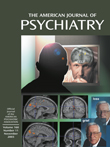Every 2 to 3 years as I was growing up in Sydney, Australia, my parents would travel overseas on business. From the first trip, my late father, a watch importer, would particularly look forward to going to New York and catching up with Professor Leopold Bellak, a school friend from Vienna. I became aware early on that Dad seemed to idolize “Leo,” although he had no reason to revere anyone; in my eyes, Father stood alone on the highest pedestal. Perhaps it was alluring that Leo had become one of America’s most distinguished psychiatrists, since Dad came from a medical family—his father had specialized in Europe in “nervous diseases.” Or perhaps it held appeal that Leo was a few years older than my father and that a schoolboy’s adulation, not uncommonly based on age difference alone, had continued despite the passage of time. Or maybe it was just Leo himself. In any event, I recently discovered another possible reason, relating to events decades before.
Prewar Vienna was no place to be if you were a Jew. The Anschluss in 1938 was immediately, and infamously, followed by degradation and horror for the Jewish people: looting of their homes and businesses, daubing of the word Jud (Jew) and the Star of David on their shops, being dismissed from jobs and banned from public places, and widespread arrests and killings. Jeering bystanders watched many of the atrocities. One morning in 1938, shortly after the German occupation, my father’s parents and extended family were suddenly arrested at their flat and thrown into prison. Judaism was their sole crime. My father, an only child and then age 16, had been out when the arrests were made and, upon return, found himself alone and having to cope. After learning of his family’s fate, my father visited the prison daily, bringing much needed food and clean clothing. This went on for several weeks until, unexpectedly, the family was released.
My father and his parents miraculously managed to escape the hellhole that was wartime Europe, living in Palestine for a while and eventually, in 1949, settling in Australia. The story thus far I had known for a long time. However, only recently, while sifting through my father’s possessions, did I discover that Dad had a “guardian angel” during his family’s imprisonment all those years ago. A yellowing letter, written by my father to his jailed parents in an effort to reassure them, read: “Wenn ich nicht zu hause bin, bin ich bei Bellak” (“When I’m not at home, I am at the Bellaks”). My mother confirmed for me that this was Leo’s family.
After graduating in medicine and being initially unsure which career path to follow, I decided in 1986, at the age of 29, to enter psychiatry. In making the decision, which took some months, I would not uncommonly conjure up a mental picture of Dad’s friend, “Leo the psychiatrist,” and imagine myself in a similar role. I am sad that I never met Leo, who died in 2000 at age 83, but in my training I came to appreciate his contributions to psychiatry, especially in the areas of schizophrenia, psychotherapy, and psychological testing. As I sit in my office in Sydney, looking down a grassy bank onto a river that winds gently toward the harbor, I now sometimes find myself thinking about life’s journeys, about Dad and Leo, about dislocation and relocation, and about the psychiatric profession.
There are many factors that draw us to psychiatry and that foster our sense of professional being and belonging once there. For me, by following in the footsteps of my father’s protector, there is something spiritual and perhaps even ordained in being a psychiatrist. Dad’s tale is, for me, a source of inspiration and, with that, my chosen profession is even more deeply satisfying.

